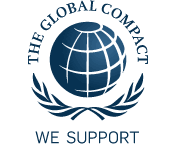Human Rights

During 2008 we:
- Trained suppliers in China, Mexico and South Africa
- Joined the United Nations Global Compact
Ford Motor Company has long recognized that treating people with dignity and respect is fundamental to how we conduct business around the world. In 2000, we made human rights a core element of our sustainability strategy, and in 2003, we began implementing the Ford Code of Basic Working Conditions (CWBC) throughout our global operations and $90 billion supply chain. Ford requires suppliers to ensure that products – no matter where they are made – are manufactured under conditions that demonstrate respect for the people who make them. This is just as important to us as quality, cost competitiveness and timeliness of delivery.
In order to effectively engage suppliers throughout the chain on issues relating to human rights and working conditions, Ford takes a three-pronged approach:
- Engagement with Individual Supplier Facilities: Training and capability building form the basis of Ford's supply chain working conditions program, supported by assessments of individual factories. Through these programs, we have trained 1,621 managers at 1,317 supplier companies and assessed more than 550 suppliers.
- Engagement with Key Suppliers' Corporate Management: Ford is working with its strategic production suppliers at the corporate level to enhance their policies, verification systems and ability to influence their own supply chains.
- Collaboration within the Automotive Industry: Ford is driving collaboration between automakers and supply chain companies on global working conditions issues through the Automotive Industry Action Group (AIAG).
During 2008, we expanded our work in each of these areas, with a goal to leverage our complex global supply chain to make a positive impact in the markets in which we do business.
In early 2008, Ford joined the United Nations Global Compact (UNGC), a framework for businesses that are committed to aligning their operations and strategies with 10 universally accepted principles in the areas of human rights, labor, the environment and anti-corruption. This action reinforces our commitment to outstanding performance and transparency in these areas.
Ford was asked to join the UNGC's Human Rights Working Group as a representative of global industry; we are the only automotive company participating on that panel. The Working Group's objectives include outreach to other businesses and society and collective advocacy around the 60th anniversary of the Universal Declaration of Human Rights. The Working Group also aims to improve dialogue with governments; build capacity on business and human rights generally and on particular human rights issues; foster collaboration with partners, including nongovernmental organizations; and work with business and human rights thought leaders to share methods and approaches.
Human rights refers to basic standards of treatment to which all people are entitled. It is a broad concept, with economic, social, cultural, political and civil dimensions. For Ford, this means ensuring that our products, no matter where they are made, are manufactured under conditions that demonstrate respect for the people who make them. It also means respecting the rights of people living in the communities around our facilities, and those of our suppliers, who may be affected by these operations.
Working conditions refers to aspects of human rights in the workplace, as governed by local laws and affected by international standards pertaining to workplace issues such as child labor, harassment and discrimination, health and safety, wages and benefits, freedom of association, working hours and forced labor.
The 10 Principles of the UN Global Compact
Human Rights
- Principle 1: Businesses should support and respect the protection of internationally proclaimed human rights; and
- Principle 2: make sure that they are not complicit in human rights abuses.
Labor Standards
- Principle 3: Businesses should uphold the freedom of association and the effective recognition of the right to collective bargaining;
- Principle 4: the elimination of all forms of forced and compulsory labor;
- Principle 5: the effective abolition of child labor; and
- Principle 6: the elimination of discrimination in respect of employment and occupation.
Environment
- Principle 7: Businesses should support a precautionary approach to environmental challenges;
- Principle 8: undertake initiatives to promote greater environmental responsibility; and
- Principle 9: encourage the development and diffusion of environmentally friendly technologies.
Anti-Corruption
- Principle 10: Businesses should work against corruption in all its forms, including extortion and bribery.

Perspectives on Sustainability
Mark Mittelhauser
Acting Director, Office of International Labor Affairs and Corporate Social Responsibility, Bureau of Democracy, Human Rights and Labor, U.S. Department of State
Related Links
- In This Report:
- External Web Sites:
Downloads
- UN Global Compact Letter from Alan Mulally
(pdf, 126kb)
